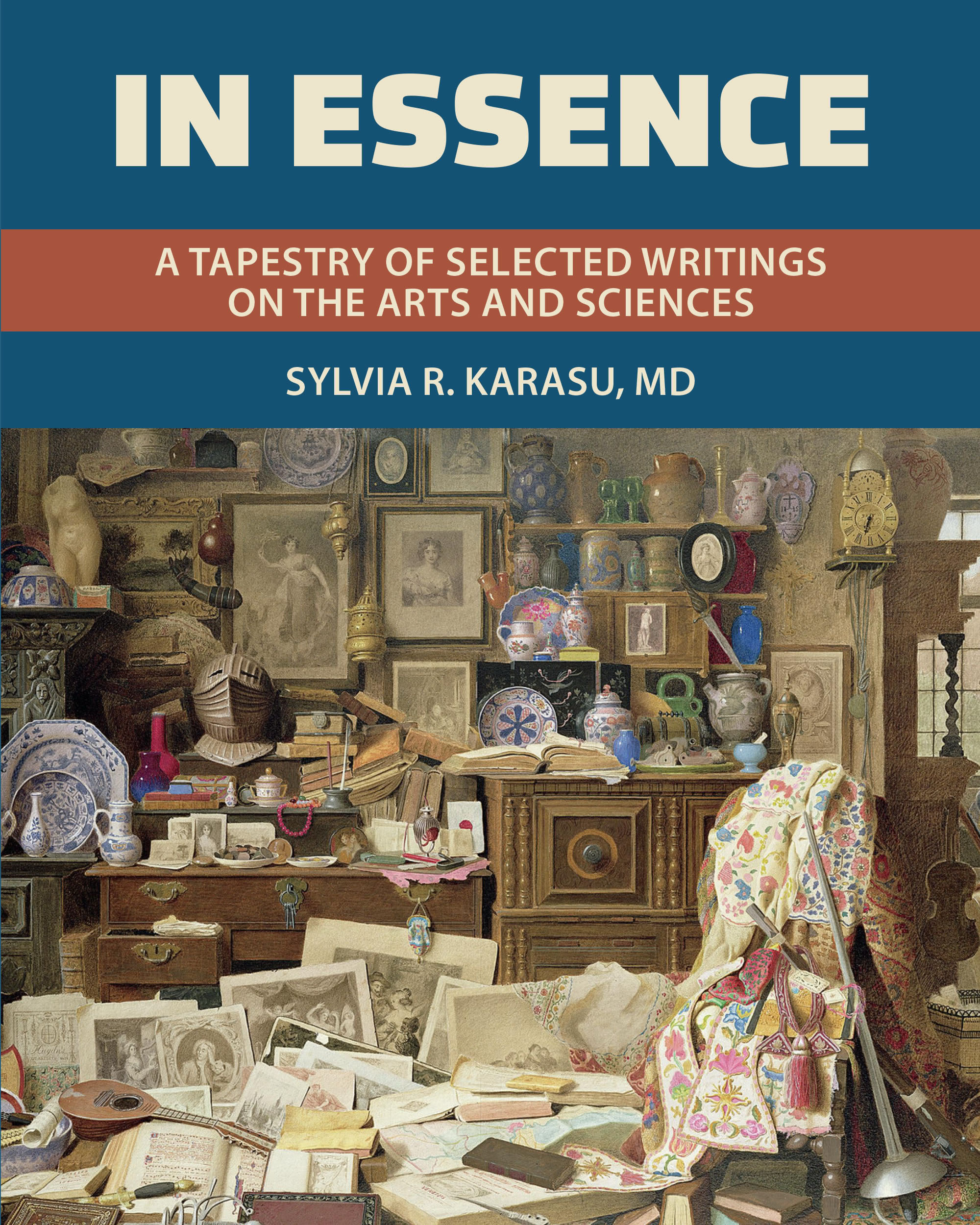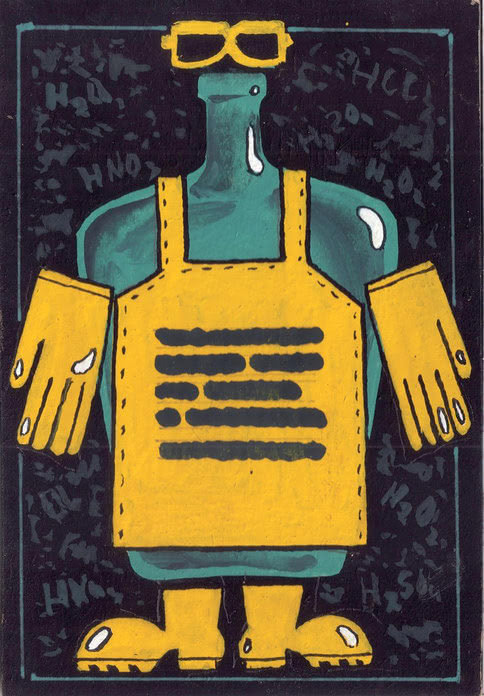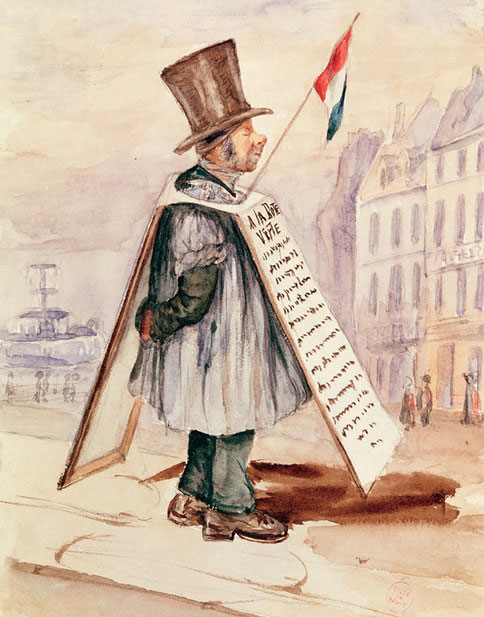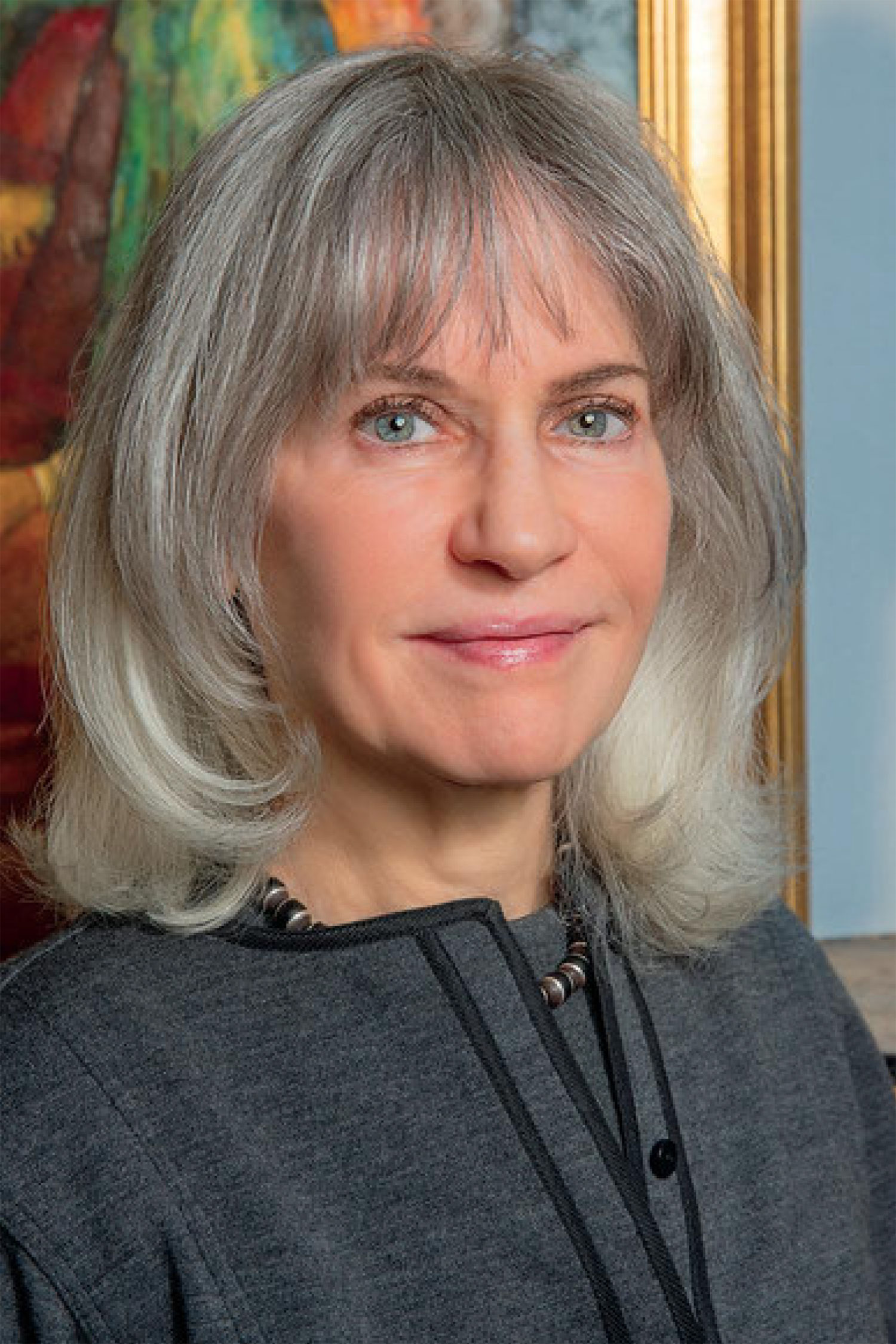In Essence: A Tapestry of Selected Writings on the Arts and Sciences (May, 2025)
INTRODUCTION
In Essence: A Tapestry of Selected Writings on the Arts and Sciences has evolved from the monthly blogs I have posted over the past 14 years for psychologytoday.com. My previous compilation of 101 blogs focused almost exclusively on obesity research. For this volume, I have compiled the subsequent 67 blogs. I have now incorporated seven essays I had written for the online medical humanities journal Hektoen International.
As a psychiatrist, I remain heavily biased toward a medical and psychological approach as I weave together disciplines and draw insights from philosophy, history, literature, film, and the arts. I infuse each piece with references from some of the world’s most prestigious writers and scholars and color images from some of our most influential artists. If there is any specific motif that emerges from my tapestry, it is the importance of our connection with the world of art and science as we search for traces of meaning and purpose within our lives.
Sylvia R. Karasu, MD is a Clinical Professor of Psychiatry at Weill Cornell Medicine, an Attending Psychiatrist at NewYork-Presbyterian Hospital, and a long-standing member of the Institutional Review Board of The Rockefeller University. Dr. Karasu is the author Of Epidemic Proportions: The Art and Science of Obesity (2019), a compilation of 101 scholarly blogs she wrote for psychologytoday.com. She is also the senior author of The Gravity of Weight: A Clinical Guide to Weight Loss and Maintenance (2010) and The Art of Marriage Maintenance (2005.)
Dr. Karasu is a cum laude graduate of the University of Pennsylvania and has her MD degree from Einstein College of Medicine. She is a Distinguished Life Fellow of the American Psychiatric Association, a graduate of the New York Psychoanalytic Institute, and an elected Fellow of the New York Academy of Medicine. She has been a contributor to the online medical humanities journal Hektoen International, and she has been writing monthly blogs for psychologytoday.com for over 14 years.
She has a private psychiatric practice in New York City.
CONTENTS
- INTRODUCTION1
PART I: BLOGS
- 1. The Obliterative, Dislocating Effects of Stress5
Mapping out sorrow: from homeostasis to allostasis and allostatic load. - 2. The Scientific Coming of Age of an Old Concept: Hormesis10
When a small dose has the power to heal - 3. Body in Motion: Exercise and Cognition15
The science behind the relationship of exercise to cognitive functioning - 4. Vegetarianism: “Shunning the Sacrilegious Taste of Blood”22
A “nourishing life” on a diet of fruits, vegetables, grains, and seeds. - 5. Twin Studies and the “Heritage of Corpulence”28
Part 1: Separating a shared environment from shared genes - 6. Twin Studies: Determining the “Heritage of Corpulence”33
Part 2: The contributions of heredity and environment on obesity. - 7. Location, Location, Location: The Distribution of Fat38
Where fat accumulates in the body may have serious health consequences. - 8. Body Composition: Made to Measure44
Determining how much of our body is fat and how much is fat-free. - 9. Counterfactual Thinking: Imagining What Might Have Been50
Those “metaphoric forks” of alternate possibilities along the path of life - 10. A Sacred Cow? Controversial Recommendations about Red Meat55
“Dietary pseudo-confusion” has researchers seeing red. - 11. Prized and Proscribed: Our Ambivalent Feelings about Meat60
The idea of eating meat elicits strong reactions. - 12. Hope: Our Mind in Suspense66
The human need for an “optimal margin of illusion” during illness. - 13. The Intricate Choreography of Aging Gracefully72
Part I: A search to prevent the mental and physical withering of old age. - 14. “A Privileged Way of Knowing:” Science and Aging Gracefully77
Part 2: Attempts to increase our health span and ward of the effects of age. - 15. The Geography of Loneliness82
Part I: Our human need for relationships with others–some definitions. - 16. The Biology of Loneliness86
Part 2: The physical and psychological consequences of loneliness and isolation. - 17. Traces of Ourselves: The Remarkable Power of Touch91
Throughout the life cycle, most humans crave another’s touch. - 18. The Raging Cytokine Storm96
The havoc wrought by an immune system gone rogue. - 19. Fat: Death in the Time of COVID-19101
Those with excessive weight are more vulnerable. - 20. Guinea Pigging: Healthy Volunteers in Phase I Trials105
“Captives of circumstance” may participate in clinical research. - 21. Black Artists, Racial Equality, and Dr. Albert C. Barnes109
Known for his art collection, he is less well known for championing civil rights - 22. The Opium Eaters113
Why are adolescents and young adults vulnerable to addiction? - 23. Controversy for Breakfast118
Researchers investigate “the most important meal of the day.” - 24. Chrono-Nutrition: An Idea Whose Time Has Come121
When we eat may be as important as what we eat. - 25. Fat in All the Wrong Places126
The “too, too solid flesh” of ectopic fat - 26. Our All-Too-Human Gullibility131
We often fail to detect deception. - 27. The Olfactory Landscape136
Smell is our most underappreciated sense. - 28. The Truth in Masquerade141
Deception is common but detection is not. - 29. Conspiracy: Doubt Mongering145
When doubt evolves into conviction. - 30. What Is Preference Falsification?151
People often misrepresent what they really think or believe. - 31. Is There a Link between Sugar Intake and Cancer?155
Excessive sugar could produce an environment conducive to some tumors. - 32. Nausea and Vomiting during Pregnancy: A Protective Mechanism?160
Expectant women often experience distressing symptoms. - 33. Treating the Pregnant Woman with Pernicious Vomiting164
Evolution in our thinking about symptoms during pregnancy. - 34. Neither Sick nor Healthy: Patients-in-Waiting169
Surveillance medicine has created uncertainty for those at risk. - 35. Our Unnatural Fascination with All Things Natural173
The word “natural” has taken on mythic significance in American culture. - 36. In the Company of Scientists177
Transforming the world, one experiment at a time. - 37. Symmetry’s Infinite Discords183
Asymmetry reflects transience and precariousness in life.
PART I: BLOGS (continued)
- 38. Ain’t Misbehaving? Self-Inflicted Illness188
We blame the victim for failures of self-care. - 39. The Turmoil of Menopause193
The potential metabolic consequences during “The Change.” - 40. Menopause and Hormone Replacement Therapy: A Woman’s Dilemma197
Treatment must be individualized, and a woman should have a thorough workup. - 41. Resilience202
The power of alchemizing misfortunes. - 42. Metformin: Rejoicing in the Lost Lilac205
The unlikely journey of a medieval herbal remedy. - 43. Alzheimer’s Disease: The Inevitable Presence of Absence209
Does metformin have any role in Alzheimer’s disease? - 44. A Writer in Pain214
As an unwelcome, cruel guest, pain infiltrates the body. - 45. Melatonin: A Potential Disease-Deferring Hormone219
Darkness Visible: In all plants and animals. - 46. Melatonin and the Anguish of the Marrow224
This hormone may have a role in the treatment of osteoporosis. - 47. Milk by Any Other Name229
Determining a “standard of identity” for milk. - 48. Collecting: A Demonic Passion235
Understanding the questing spirit of the collector. - 49. The Hoarder239
Living amidst a spectacle of untidiness. - 50. Tattoos: The Skin as Canvas244
The body becomes a personal tapestry. - 51. The Turmoil of Uncertainty249
Living with illness can create a state of suspended animation. - 52. The Fat Child and the Concept of “Pound-Years”254
Exposing the body to years of excess fat can take its toll. - 53. On the Face of It: Pareidolia259
We see faces in inanimate objects everywhere. - 54. The Alchemy of Synesthesia264
A remarkable, luminous way of experiencing the world. - 55. The Super-Recognizers269
Some people never forget a face. - 56. The Power of Dress274
Far from frivolous, clothing can have immense psychological impact. - 57. The Significance of Hair280
We endow hair with psychological and symbolic meaning. - 58. The Weaponization of Hair285
And how it can be used to oppress, punish, seduce, and rebel. - 59. Disgust: An Emotion Most Vile291
Exploring our visceral reactions of revulsion. - 60. Germaphobia: An Infected Mind295
Obsessive-compulsive symptoms can be mild or overtly debilitating. - 61. The Pickers and the Pullers300
Psychodermatology explores the intricate connection between mind and skin. - 62. A Patient’s Need for that Empathic Witness306
Writers reflect on their experiences as patients. - 63. Hypochondria’s High Anxiety311
What is reasonable fear when it comes to health? - 64. Starstruck: The V.I.P. Patient315
What are some of the difficulties in treating the V.I.P. patient? - 65. Word Salad: A Misnomer319
The psychological concept “word salad” has been misappropriated by the media. - 66. Boredom: An Endless Present324
An appreciation of boredom in literature, art, science, and life. - 67. Flow: In a Zone of Total Focus329
There are intrinsic rewards in an experience.
PART II: ESSAYS
- 1. Compassion Failure, Schadenfreude, and the Fall of Icarus337
- 2. “I Shouldn’t Know You Again If We Did Meet:” Prosopagnosia341
- 3. About Face: from Revulsion to Compassion348
- 4. Hawthorne’s “The Birthmark:” A Failure to Find a Perfect Future in an Imperfect Present355
- 5. The Madness of Hunger361
- 6. Albert C. Barnes, MD: The Physician Who Spun Silver into Gold368
- 7. Pursuing “Conclusions Infinite:” The Divine Inspiration of Georg Cantor Acknowledgments Index of Names About the Author374
PART III
- Acknowledgments383
- Index of Names385
- About the Author402
Praise for In Essence
“Many have noted the synergy between the sciences and the humanities or liberal arts. Both rely, in some cases, on the transcendental experience of seeing things differently. Science helps us discern what is, to a reasonable degree of certainty, objectively true about the world. The arts and humanities often provide us with new questions and perspectives that science can then address. Dr. Sylvia Karasu is a master at combining the arts and sciences in her steady, beautiful work… reminding us of the human elements and how different people and topics have been perceived over the generations. Her writing harkens to both literary and historical references. And yet, all is interwoven with the science. It is a beautiful experience to read her work, and I have closely followed her blogs for well over a decade now. The reader will find no better volume to help perceive the breadth of the obesity questions and the exploration of knowledge.”
David B. Allison, PhD,
scientist, renowned obesity researcher, Distinguished Professor and Dean, School of Public Health, Indiana University-Bloomington.
“In her In Essence: A Tapestry of Selected Writings on the Arts and Sciences, Dr. Karasu has again demonstrated her great skill in weaving a story about medicine, psychology, and philosophy together with illustrative artwork to make a really wonderful story that is a pleasure to read.”
George A. Bray, MD,
Boyd Professor Emeritus, Pennington Biomedical Research Center of Louisiana State University, Baton Rouge, and Co-editor, all the editions of Handbook of Obesity
“Dr. Sylvia Karasu brings her medical expertise and psychological insights as a master psychiatrist to a broad range of fascinating human phenomena and then employs rigorous historical and current scholarship to quickly provide key insights into human behavior, aspirations, and concerns. The breadth of her expertise extends to matching her elegant prose with works of art that epitomize the key points she makes in her focused and authoritative reviews. Each one is a small jewel!”
Barry S. Coller, MD,
Physician-in-Chief, Vice President for Medical Affairs, David Rockefeller Professor, Head, Allen and Frances Adler Laboratory of Blood and Vascular Biology, Rockefeller University
“Short-form essays in the medical humanities of real quality are very, very rare. Sylvia R. Karasu’s In Essence reveals with original insights moment after moment how our hopes, fantasies, and desires shape the way we deal with health and illness as doctors or patients or doctors who are patients. From the aesthetics of the body to changes in the body to conspiracies about the body, her micro-essays always teach us in the most painless way to be aware of what we believe as true or false, as that awareness may help to save each of us in the end.”
Sander L. Gilman, PhD, JD,
Distinguished Professor of the Liberal Arts and Sciences, Emeritus, as well as Professor of Psychiatry, Emeritus, at Emory University, where he was the Director of the Program in Psychoanalysis and the Health Sciences Humanities Initiative. Author of Doc or Quack: Science and Anti-science in Modern Medicine (2025)
“In Essence: A Tapestry of Selected Writings triumphantly lives up to its name: it is indeed a tapestry of knowledge. Not only is the range of topics astonishing—Karasu covers everything from grief to stress to hope to cognition to the immune system— but so too is the author’s depth of insight—her expertise in human psychology is buttressed by a deep awareness of the global history of literature, visual art, philosophy, and more. This is a remarkable book.”
Bradley J. Irish, PhD,
Associate Professor of English, Arizona State University, author of The Universality of Emotion: Perspectives from the Sciences and Humanities (2025)
“Sylvia Karasu once again demonstrates her tremendous skill in weaving medicine, science, history, literature, philosophy, and art into educational and elegant narratives. In Essence: A Tapestry of Selected Writings on the Arts and Sciences is an insightful and visually stunning collection that will appeal to thoughtful explorers of the human condition.”
Anne Jacobson MD, MPH,
physician, author, and consulting editor to Hektoen International, an online medical humanities journal
“Like Oliver Sacks and Atul Gawande, Sylvia Karasu deftly synthesizes scientific knowledge and humanistic wisdom, educating and enlightening in equal measure. A gorgeously illustrated, beautifully written essay collection that will have something profound for any reader.”
Alan Levinovitz, PhD,
Professor of Religion, Department of Philosophy & Religion, James Madison University and author of Natural: How Faith in Nature’s Goodness Leads to Harmful Fads, Unjust Laws, and Flawed Science (2021)
“To open Dr. Sylvia Karasu’s In Essence is to find oneself in a cornucopia of wide-ranging, erudite essays that combine scientific and humanistic insights and spectacular visual images that deepen and delight. Reader: a great pleasure awaits you!”
George J. Makari, MD,
Director of the DeWitt Wallace Institute of Psychiatry: History, Policy and the Arts, Professor of Psychiatry, Weill Cornell Medicine and author, Of Fear and Strangers: A History of Xenophobia (2021)
“In Essence collects Dr. Sylvia Karasu’s elegant essays from Psychology Today and other publications. These essays cover a wide variety of topics—vegetarianism, twins, opium, and gullibility—each full of unexpected information. They are all stunningly illustrated with artworks chosen to illuminate the subject under analysis precisely. The book is breathtaking—a treasure not to be missed.”
Marion Nestle, PhD, MPH,
Professor of Nutrition, Food Studies, and Public Health, Emerita, NYU, and author of What to Eat Now (2025) and The Fish Counter (2025)
“Sylvia Karasu has assembled a collection of her remarkable insights—dozens of blogs and essays about your health and well-being and the way you see the world—and packaged them with a museum-worthy collection of art and literary references that will fascinate you. For topics ranging from pain to compassion, and from tattoos to the nature of infinity, Dr. Karasu shows us how we did not know what we thought we knew.”
Kenneth J. Rothman, Dr.PH,
Professor of Epidemiology, Boston University, Distinguished Fellow Emeritus, Research Triangle Institute, and author of Epidemiology: An Introduction, 3rd edition (2024)
“Dr. Sylvia Karasu has given us an extraordinary collection of essays and commentaries that interweave elements of science and culture in a scholarly yet engaging manner. The breadth and range of her writings will richly reward both physicians and scientists, as well as the general public.”
Judith A. Salerno, MD, MS,
President Emeritus, The New York Academy of Medicine
“A terrific book, beautifully written and full of wisdom and insights.”
Cass R. Sunstein,
the Robert Walmsley University Professor at Harvard Law School and author, most recently, of How to Become Famous: Lost Einsteins, Forgotten Superstars, and How the Beatles Came to Be (2023).
Praise (continued)
The artist illuminates the objective world to us, exactly as does the scientist…The artist is primarily the discoverer just as the scientist…
Albert C. Barnes, physician and art collector, in The Art in Painting, 3rd Edition, Revised and Enlarged, New York: Harcourt, Brace and Company, 1937
Observation is always selective…for the scientist, a point of view is provided by his theoretical interests, the special problem under investigation, his conjectures and anticipations, and the theories which he accepts as a kind of background: his frame of reference, his “horizon of expectations…
Karl Popper, philosopher, in Conjectures and Refutations: The Growth of Scientific Knowledge. New York: Routledge Classics, 1963
We leave traces of ourselves wherever we go…whatever we touch.
Lewis Thomas, physician and author, in The Lives of the Cell: Notes of a Biology Watcher, 1974, Kindle Edition
In science, there is sometimes a fine line between healthy skepticism and misrepresenting and exaggerating scientific uncertainty.
David B. Allison, PhD, Dean and Distinguished Professor, School of Public Health, Indiana University, Bloomington, in American Scientist, 2018






